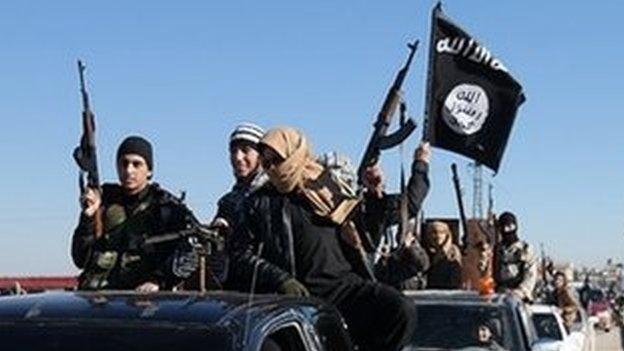How will Australia's citizenship changes work?
- Published
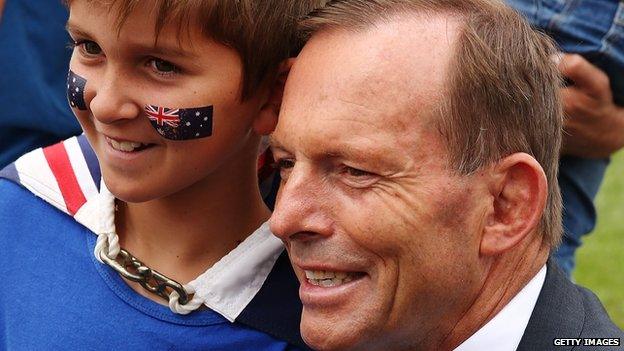
Australia says it needs to tighten its citizenship rules to combat home-grown terrorism
The Australian government wants to strip Australian citizenship from dual nationals who engage in terrorism.
On Wednesday, it introduced amendments, external to the Australian Citizenship Act 2007 to parliament that would prevent dual nationals involved in terrorist acts overseas from returning to Australia, and deport dual nationals who engage in terrorism in Australia.
The amendments will come before a vote in parliament.

What are the laws on citizenship now?
Under the current act, people are automatically stripped of their Australian citizenship if they are a national or citizen of a foreign country and they serve in the armed forces of a country at war with Australia.
According to the government, there are about 120 Australians fighting with Islamic State (IS) in the Middle East, and about half of them hold dual citizenship.
It says another 160 Australians are supporting IS through financing and recruiting terrorism, and it has cancelled 120 Australian passports to stop people travelling to conflicts in the Middle East.

What does the amended legislation do?
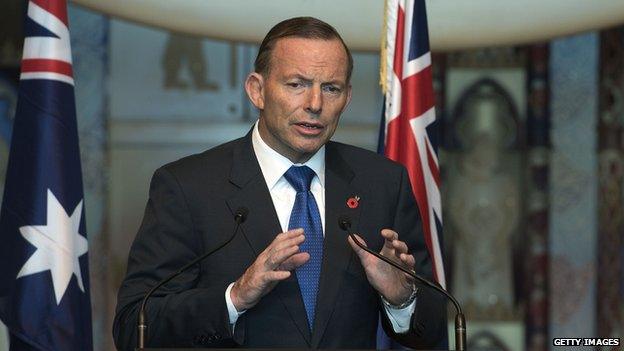
Mr Abbott says Australians must appreciate "the scale of evil" being practised by terrorists
The changes expand the operation of section 35 of the Australian Citizenship Act to automatically strip dual nationals of their Australian citizenship if they "engage in various kinds of conduct inconsistent with allegiance to Australia".
The changes apply to dual citizens born in Australia and people from other countries who have been naturalised.
The bill confirms the loss of citizenship will be "subject to judicial review".

What conduct is considered inconsistent with allegiance to Australia?
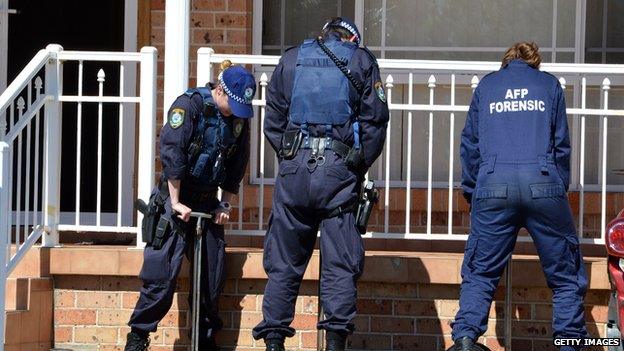
Australian police have conducted numerous raids against alleged terrorist plotters
Engaging in international terrorist activities using explosive or lethal devices.
Engaging in a terrorist act; providing or receiving training connected with a terrorist act.
Recruiting for or financing a terrorist organisation.
Going overseas to fight for foreign armies deemed enemies of Australia, or for listed terrorist organisations.
Being convicted of terrorism offences by an Australian court.

Will the legislation apply retroactively?
No. The amendments will apply from the day they become law.
However, Prime Minister Tony Abbott has asked a parliamentary committee to examine whether the amendments should be retroactive and apply to dual nationals now in jail on terrorist offences who could be deported upon their release.

What happens if a person's second country of nationality refuses to take them in?
The government has not ruled out the option of holding people in indefinite detention if their second country of nationality refuses to take them in.
"That's a bridge that we would cross if and when we came to it," said Mr Abbott.
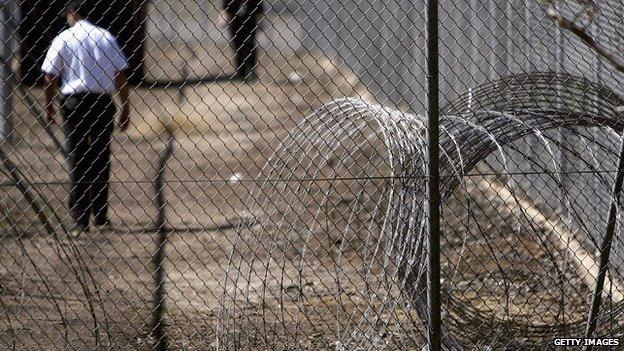
People who can't be deported or those who become "stateless" could be detained indefinitely

What happens to the children of people who lose their citizenship?
Under the current law and under the amendments, if a person ceases to be an Australian citizen, the immigration minister can revoke the citizenship of that person's children if they are aged under 18, unless that action leaves the children stateless, or unless the other parent is a "responsible" Australian citizen.
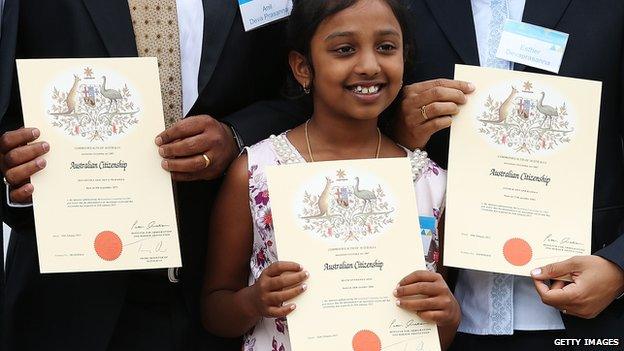
Australia's Citizenship Act already allows for children to be stripped of their citizenship
This section has come under extra scrutiny following reports that convicted Australian terrorist Khaled Sharrouf may have been killed while fighting with IS in Iraq.
Sharrouf's Australian-born wife and their five children, have said they want to return from the Middle East to Australia.

Can these laws apply to Australian citizens who were born in Australia and are not citizens of another country?
No. However, Mr Abbott has indicated there will be more legislation later this year to target sole Australian nationals who engage in terrorism.
- Published27 May 2015
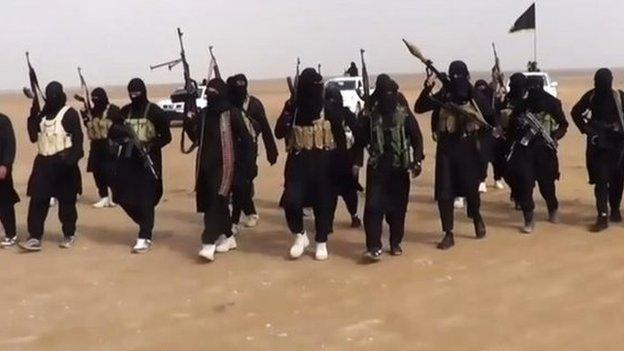
- Published12 March 2015
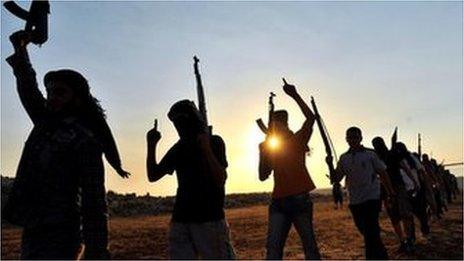
- Published23 June 2015
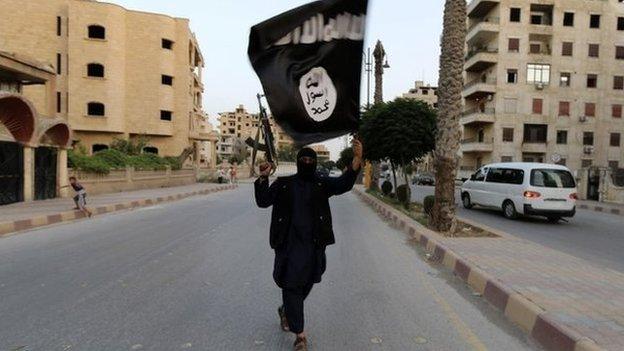
- Published1 June 2015
